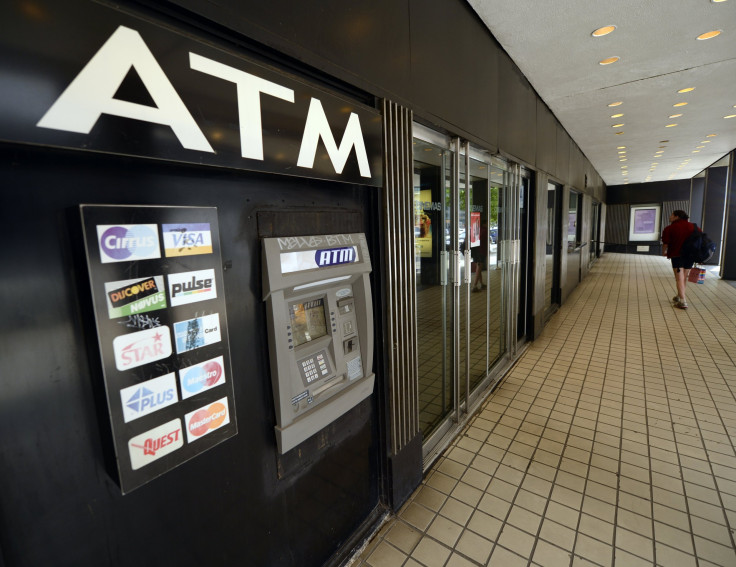Why Regulators Want Banks And Credit Card Companies To Let You Sue Them

A consumer regulator is taking aim at the way banks, credit card issuers and other lenders write contracts to stop customers from going to court if they have a complaint. Financial services companies say arbitration clauses save time and money by requiring customer disputes to be resolved in a private venue instead of court. The Consumer Financial Protection Bureau calls these clauses a “free pass” that allows lenders to wriggle out of responsibility if they mistreat customers.
On Wednesday, the bureau announced that it is weighing new bans on the practice, including barring companies from telling customers they can’t bring class actions. The proposal, which regulators planned to present at a public hearing in Denver, would apply to credit cards, checking accounts, payday loans and private student loans, among other financial products the CFPB oversees.
“Consumers should not be asked to sign away their legal rights when they open a bank account or credit card,” Richard Cordray, the CFPB's director, stated in prepared remarks. “Companies are using the arbitration clause as a free pass to sidestep the courts and avoid accountability for wrongdoing.”
The proposal is the CFPB's first step toward any new rules regarding arbitration clauses -- terms that are usually buried in fine print and which have become a battleground topic in Washington. Critics say mandatory arbitration is inherently biased against consumers, with companies choosing -- and paying -- the arbitrator. Congress struck arbitration clauses from mortgage contracts when it passed the Dodd-Frank financial reform law in 2010. But since then, the Supreme Court has issued landmark rulings in favor of companies such as AT&T and American Express as they fought to enforce arbitration clauses against customers who tried to sue them.
Last March, the CFPB completed a three-year study of arbitration clauses as required by Congress. The results suggested that use of the clauses is widespread -- covering tens of millions of consumers -- yet they are little understood.

For example, the CFPB found that contracts with arbitration clauses applied to 53 percent of the credit card market. But among approximately 1,000 credit card holders surveyed by the bureau, more than 75 percent did not know whether their own contract contained such a clause.
The bureau also found evidence of credit card issuers opting to block customer class actions when they could: In a sample of 40 credit card cases where customers attempted to file a class action but were bound by an arbitration agreement, the companies sought to compel arbitration about two-thirds of the time.
In the new proposal, the bureau said: “Consumers are better protected and the market is fairer” when consumers can band together as a group against a company. Disputes that amount to small-dollar claims on an individual basis could deter consumers from taking any action at all. But class actions can lead to significant cash settlements and potentially deter bad behavior by companies, the bureau said.
The CFPB estimates that between 2008 and 2012, at least 32 million consumers per year reaped an cumulative average of $540 million in class action settlements. About 18 percent of that amount went to expenses and attorney’s fees, according to the CFPB.
Banks have challenged the CFPB’s interpretations, arguing that when consumers do win in arbitration, they win higher amounts on an individual basis than they do in class actions. Arbitration is “faster, less expensive and more effective,” according to a July letter signed by the American Bankers Association, the Consumer Bankers Association and the Financial Services Roundtable.
“We are disappointed the bureau, despite numerous studies and the CFPB’s own report, is choosing to side with trial attorneys over the interests of consumers,” Richard Hunt, the Consumer Bankers Association's president and CEO, said in a statement Wednesday. “Given today’s announcement is not final, we hope the CFPB will reconsider its decision.”
The CFPB said it’s not planning to eliminate all uses of arbitration clauses in contracts. But in addition to the changes concerning class actions, the bureau might require companies to submit information about individual arbitration claims and outcomes to regulators. Unlike court filings, arbitration claims are not on the public record, and the CFPB said it might also choose to publish online the information companies submitted in order to increase transparency.
Of particular concern, the bureau said, was a case brought in 2009 by the Minnesota attorney general against National Arbitration Forum Inc., a major arbitrator of credit card debt disputes. Without admitting wrongdoing, the company agreed to end certain arbitration operations and settled allegations that while it marketed itself as independent and neutral, it maintained financial ties to the collection industry and worked "behind the scenes" to get credit card companies to select the company to hear disputes.
© Copyright IBTimes 2024. All rights reserved.











